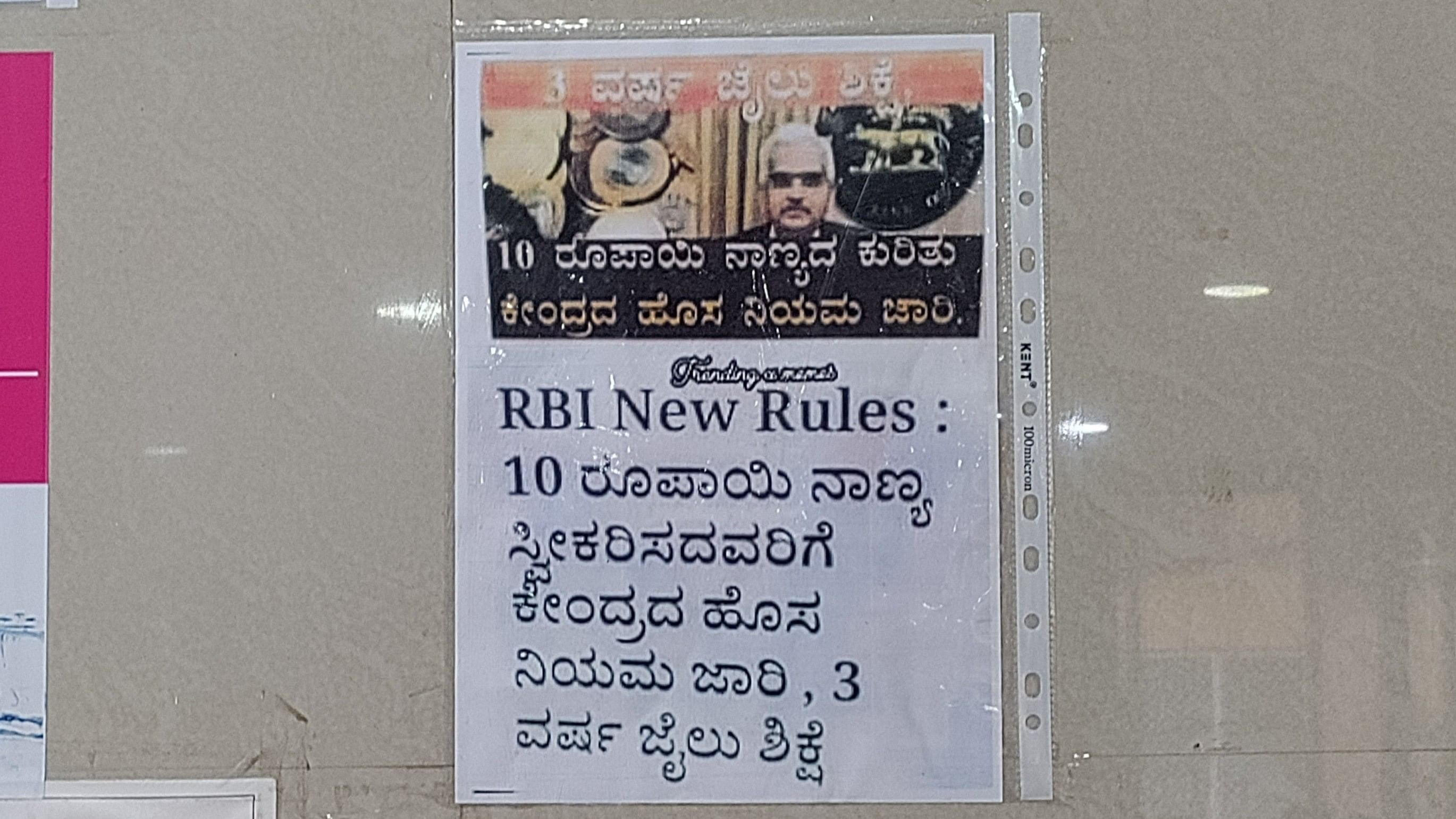
A notice at the Rangadore Memorial Hospital canteen lists the consequences of not accepting Rs 10 coins.
Credit: Special Arrangement
Two decades after the first Rs 10 coin was minted in India, many citizens still hesitate to accept it as legal tender. Despite the Reserve Bank of India (RBI) issuing several notices reaffirming the bi-metallic currency’s legality over the years, people remain reluctant to use it.
Some cite doubts about its legality following a rumour about it being fake, while others complain about the coin’s size and weight.
Shops and darshinis in Bengaluru have started putting up a notice saying, “A new rule from the government of India says, people not accepting the Rs 10 coin will invite a three-year term in jail.”
The 10-rupee coin is a legal tender as per the Indian Coinage Act, 1906. Refusing to accept the coin is a violation of the act. A case was registered in Madhya Pradesh’s Morena district when a shopkeeper refused to accept a coin in 2017, under Section 188 of the Indian Penal Code, according to online reports.
In the Rangadore Memorial Hospital canteen, Shankarapura, the cashier says they were “forced to put up a board” about two months ago when they started receiving fewer Rs 10 notes. “With a lesser number of Rs 10 notes in circulation now, we had to put up the board,” he says.
A similar board was seen in Taaza Thindi in Jayanagar 9th Block. B M Changappa, the manager says, “There is still some hesitation but customers are more open now.” Earlier customers would have quarrels with the cashier and even throw the coin at him in anger, he says.
A petty shop owner on M G Road is puzzled about why people don’t want to accept the coins. “A Rs 10 note will wear out in a few months but coins are long-lasting,” he says. Customers often pick a fight when he offers a Rs 10 coin.
Sameer, a shopkeeper at an essentials store in Mahadevapura, thinks “the government is not creating enough awareness” about the coin’s legality.
However, the response is more positive in BMTC buses across the city. A conductor of a metro feeder volvo bus connecting Silk Board and Krishnarajapura metro station, points out that passengers are more open to accepting the coin now. Another bus conductor says, “Bus depots wouldn’t accept the coins earlier, which is why we wouldn’t accept them. With the depot accepting them now, the exchange is easy.”
Hebbal resident Manasa Sharma says nine out of 10 people refuse it. She adds that when she (a coin collector) first saw the coin, she thought “it was beautiful” and started collecting them.
Many think the problem is specific to Bengaluru. Neeraj Kinger, a business consultant who visits the city, often points out he does not face the problem in Manali, Himachal Pradesh, where he resides. “Even Rs 20 coins are in circulation here,” he adds.
However, screenwriter Samarth Madhusudhan Rao has witnessed the problem in places like Goa too. Online reports suggest the problem exists across the country.
Trivia on Rs 10
*The RBI has issued 14 different kinds of coins on various occasions like the 125th birth anniversary of B R Ambedkar, International Yoga Day, and silver jubilee of Shri Mata Vaishno Devi Shrine Board.
*An RTI request by a media house revealed the production cost of a Rs 10 coin to be Rs 5.54.